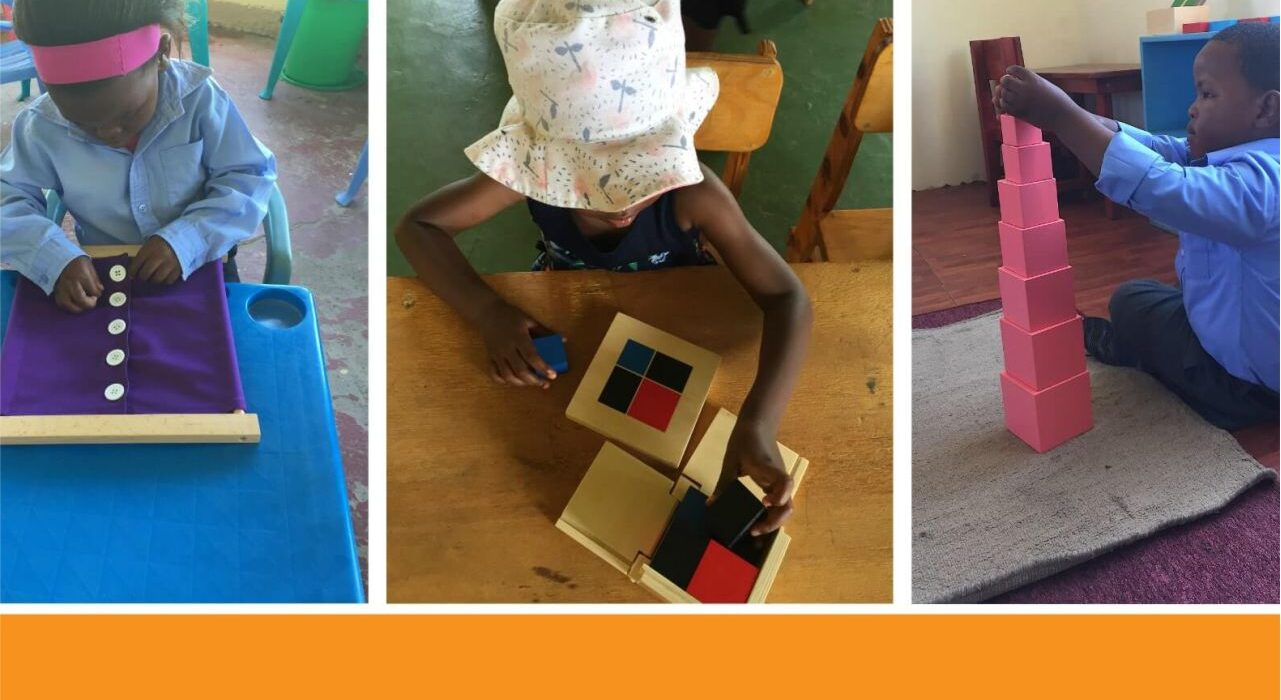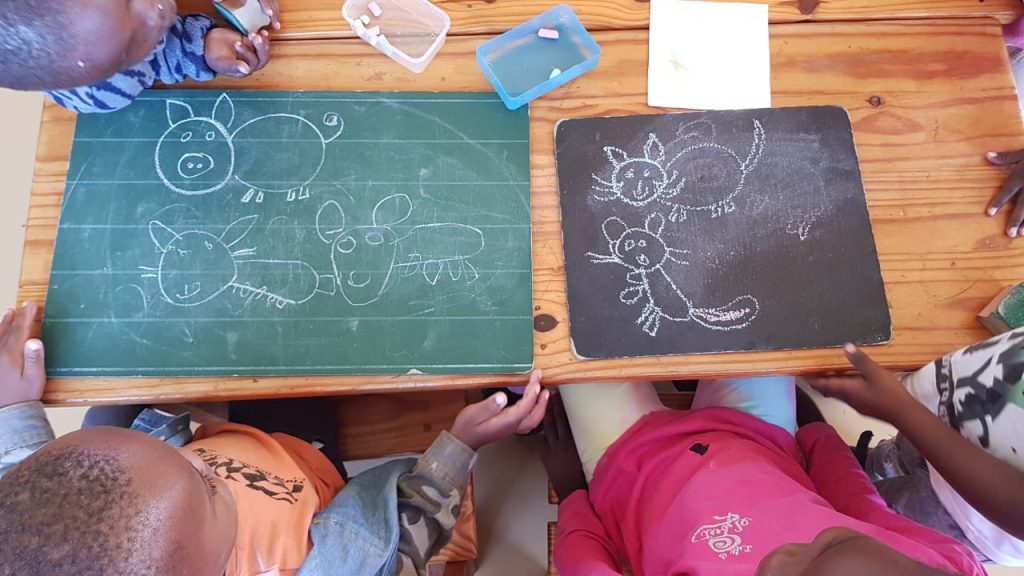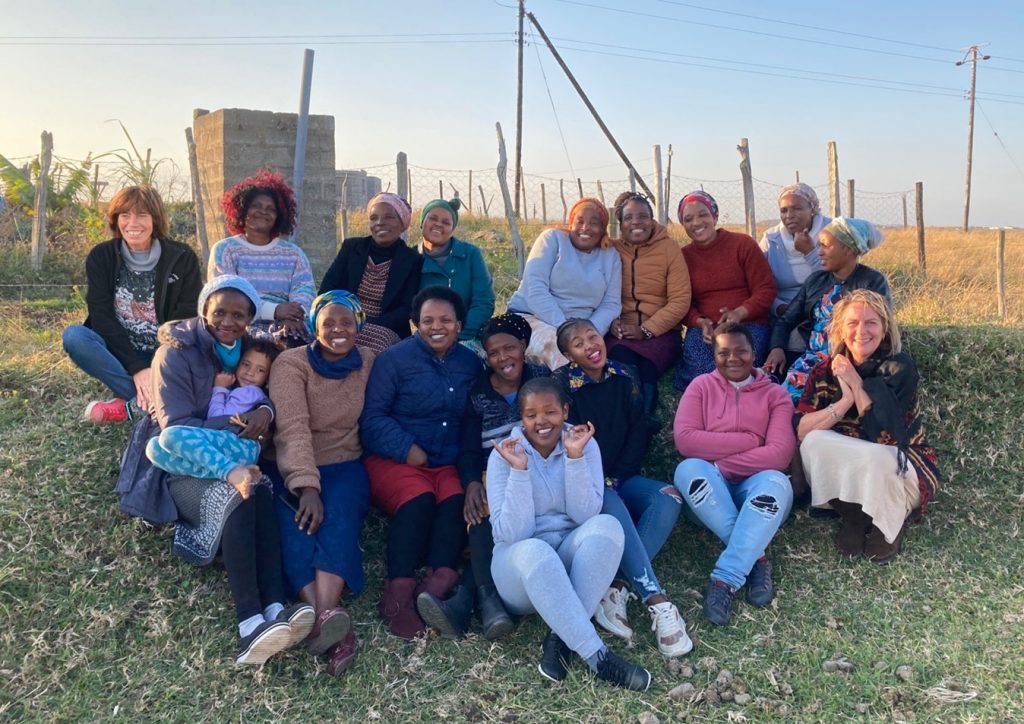Time flies when you’re having fun
This is exactly how we felt when we realised that it has been six and a half years since we became involved with the community schools in the Coffee Bay area. We have become particularly close with the five local ladies who completed their training in 2015 and are actively striving to raise the quality of the education they offer children in their schools.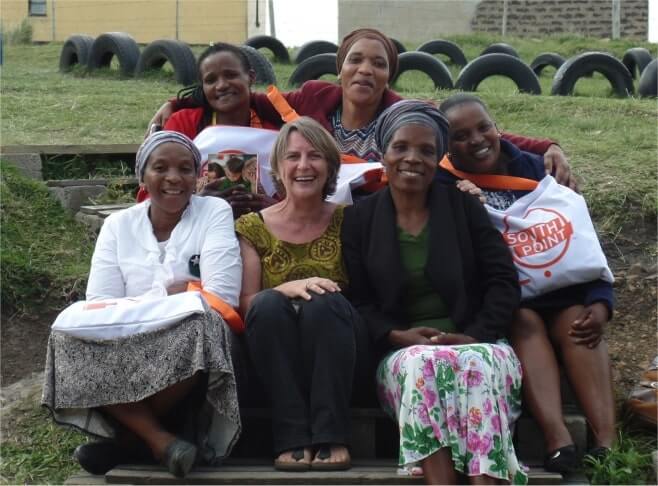
Above: Nomonde, Nokuthula, Cynthia, Jen, Nomapuzi and Fundiswa (from back L-R)
Over the years we have received second-hand materials through the South African Montessori community to help equip the little schools where two of the ladies work – one in the village of Ngoko and the other in Ejojweni. We have supplemented these donations with handmade materials made in the practical workshops in Cape Town.
The Wild Coast Montessori Hub is born
When Kamvalethu approached us last year with an offer on how they could become more involved and offer further assistance in the area, the idea of the Wild Coast Montessori Hub was born. The Hub will act as an umbrella organisation for five different Montessori preschools in the EC. These schools will receive training, mentorship, administrative assistance, financial assistance, infrastructural development and so much more! In November I joined the Kamvalethu group visit to Coffee Bay to introduce them to the two new schools (Ejojweni and Ngoko) who would be joining the Hub, and to assess what was feasible and begin planning with the local community, staff and builders for the next step.
The December holiday was all systems go! A team of builders spent two weeks at the school in Ejojweni doing major renovations. Rusty broken windows were replaced, ceilings put up, flooring laid, new gates made, walls broken through and fresh coats of paint inside and out resulted in a spacious, bright and airy new classroom space.
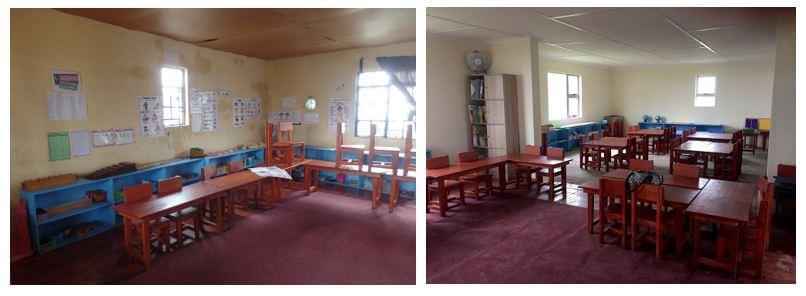
Above: Before and After at Ejojweni preschool
Back in Cape Town, we took delivery of a huge order of two sets of Montessori learning materials, that needed sorting, processing and packaging. There was also a flurry of designing, sourcing, sewing and painting to assemble the range
of practical activities for the classroom that build the children’s personal, social and developmental skills for everyday living.
Just a few days after heralding in this new decade, my friend and colleague Dawn and I filled a one-ton bakkie with the boxes and then were on the road through the drought-stricken Karoo to the Eastern Cape. I’m not sure if I’ve been given a Xhosa name yet by those I work with in the Coffee Bay area, but I’m sure it will probably be one with the connotation of “Oh heck, she’s here again to make us work hard!” So, despite it still being holidays, the teaching staff and local handymen were engaged in a week of preparing classrooms in both schools to be ready for the start of the school year. Shelving and coat hooks were made, classroom furniture washed and arranged and the new materials unpacked, thoughtfully prepared and laid out, all to be ready for the children’s return.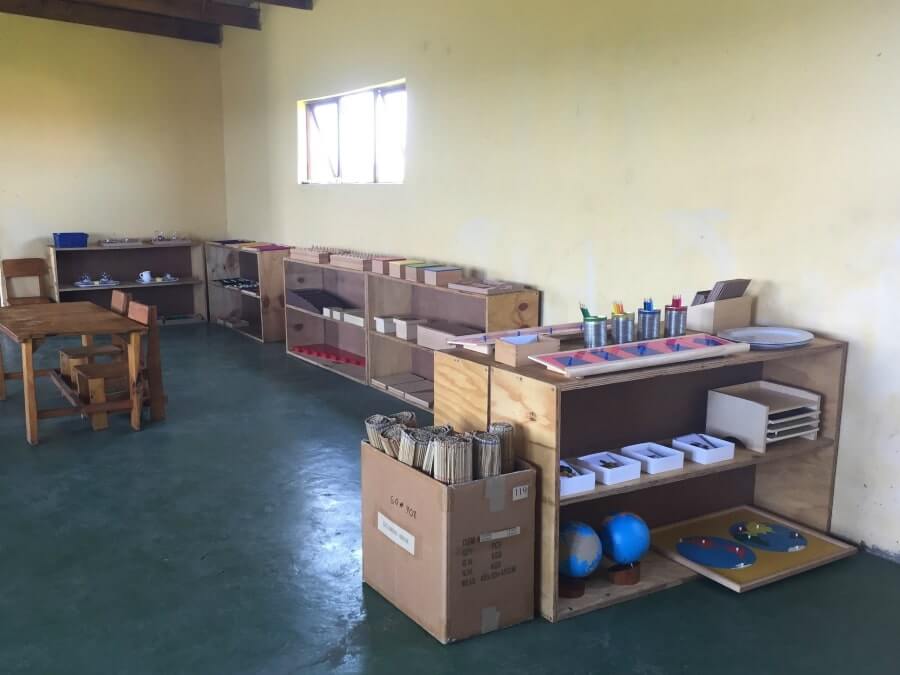
Above: New materials set up and ready!
With the flurry of activity going on at the schools, word spread and soon there was a steady stream of neighbours, committee members and parents popping in to see what was happening. Cynthia and Nomapuzi proudly showed off their new assets amid ooh’s and aah’s and lots of cheerful discussion.
The essential work of play
What a joy it was to witness the bright faces of the returning children the following week. Soon they were busy as bees, focused on their teachers’ instructions, happily choosing from the new activities and deeply absorbed in their essential work of self-development and learning. The teachers were equally delighted to have their hands on activities that were not in their classrooms before, materials they had only experienced during their training, and both committed themselves to spending afternoons going back to their books to revise and practice presentations.
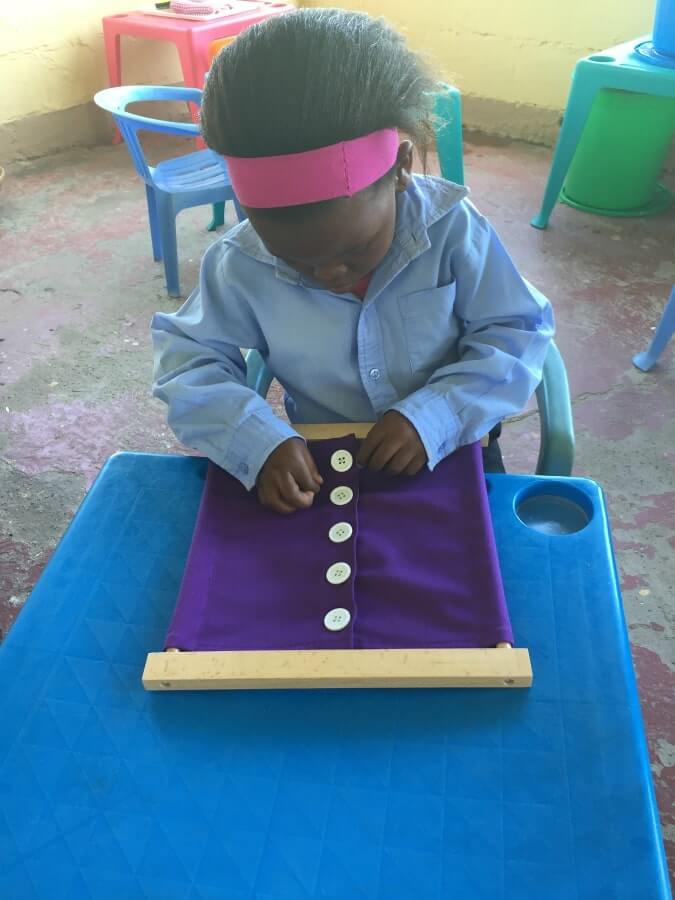
Above: Deep in concentration
The impact of this injection of funding has provided immediate food for the children’s insatiable learning appetite, which will lay strong, deep-rooted foundations for all future schooling. It has also brought a sense of pride and greater responsibility, not only to the school staff but also to the surrounding communities.
